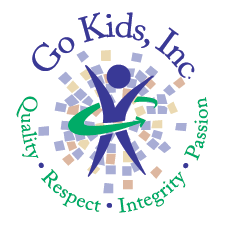10 Fun Ways to Teach Nutrition to Kids During Nutrition Month
March is Nutrition Month, and it's a great time to focus on fostering healthy eating habits and nutrition awareness, especially among kids. Good eating habits learned early can lead to a lifetime of health. Here are 10 engaging and interactive ways to help children understand the importance of nutrition and make healthy choices!
1. Create a Rainbow Plate Challenge
Teach kids about the importance of eating a variety of fruits and vegetables by challenging them to create a rainbow on their plate. Each day, they can try to include a different color on their plate, which represents various nutrients. Provide a chart where they can track their progress, and offer small rewards for every completed week of the challenge.
2. Hold a Healthy Cooking Class
Gather the kids around and involve them in preparing simple, healthy recipes. Discuss the nutrition benefits of each ingredient as you cook. Cooking is a wonderful way to merge science and fun, allowing children to see and taste the results of their effort. You might be surprised at how much they enjoy eating what they've made themselves!
3. Design a Food Group Collage
Cut out pictures from magazines or print them from online resources to represent the different food groups. Allow the children to paste these onto a large piece of paper. Discuss the importance of each food group as they create their collage, and encourage them to write down their own health tips or fun facts about each item.
4. Organize a Farmer's Market Field Trip
Contact local farmers or farmer's markets to arrange a trip. This gives children a chance to see where their food comes from and to ask questions about different foods. Farmers are excellent resources for nutrition education and can illustrate the benefits of fresh, locally-grown produce.
5. Conduct a Taste-Test Session
Gather an assortment of healthy, but unfamiliar, fruits and vegetables and allow the kids to taste-test. Have them describe the taste and texture of each food and then rank their favorites. Discuss the nutritional content and benefits of each item, and encourage the kids to be adventurous in trying new things.
6. Start a School Garden Project
Develop a small garden plot at the school or in your yard. Children can learn how to plant, nurture, and harvest their own fruits and veggies. It's a hands-on way to teach nutrition as they’ll delight in eating the fresh ‘bounty’ from their garden. It also creates a sense of responsibility and accomplishment.
7. Plan a Healthy Snack Mini-Cook-Off
Divide the children into cooking teams and challenge them to prepare a healthy and delicious snack using a secret ingredient. This fun and interactive approach to nutrition education emphasizes creative thinking and the tasting process, which kids always enjoy.
8. Perform a Puppet Show on Vegetables
If you have access to puppets, create a puppet show where they discuss the importance and fun of eating vegetables. This entertaining approach helps kids relate to the characters and understand that even puppets need to eat their greens!
9. Set Up a Nutrition Fair
Invite nutritionists, local chefs, or fitness trainers to participate in a nutrition fair. Host interactive booths where children can learn about portion sizes, the importance of water, the benefits of regular exercise, and more. This will mimic a carnival atmosphere and make learning about nutrition both fun and memorable.
10. Organize a Sports and Nutrition Week
Combine the importance of exercise with the benefits of good nutrition by organizing a sports and nutrition week. Plan a variety of physical activities and discuss how proper nutrition can enhance performance. Each day can be themed, with activities such as a 'fruit and veggie sprint' or 'protein power day' to highlight different aspects of nutrition.
By infusing these fun activities into your children’s lifestyle, you’re not just teaching them about nutrition; you’re embedding knowledge through positive experience and play, making it more likely to stick.
Here’s to a healthy and fun-filled Nutrition Month!
More Online Resources -
